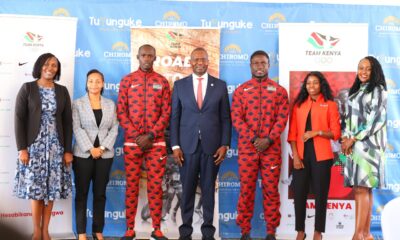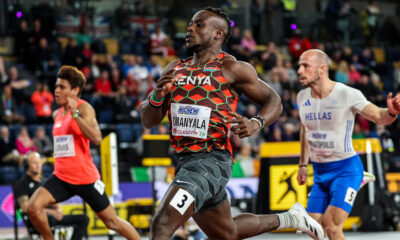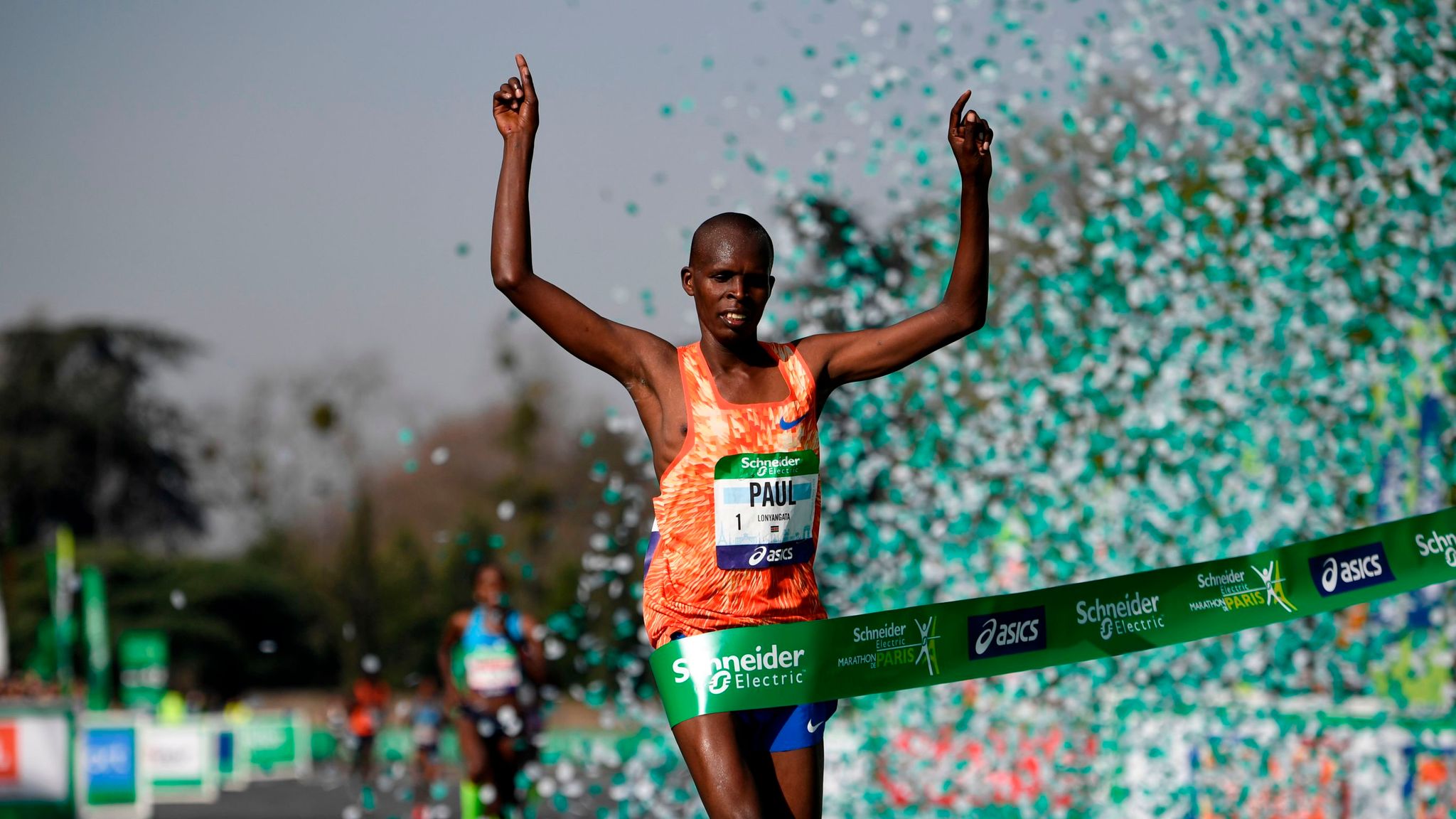- Paul Lonyangata and Edward Kiprop have both admitted to the use of drugs
- Kenya is continuously on the WADA radar due to increased doping cases
- Asbel Kiprop and Elijah Manangoi have both returned after serving bans
The Athletics Integrity Unit has slapped two Kenyan athletes with bans over the use of prohibited substances. Two-time Paris Marathon champion paul Lonyangata has been banned for a year and seven months while 22-year old Edward Kiprop has been slapped with a three-year ban.
Lonyangata has been banned for the use of Furosemide, while Kiprop’s Adverse Analytical Findings on an in-competition test showed positive results for Metabolites of Nandrolone.
Both athletes admitted to the Adverse Analytical Findings on their samples and were served with reduced sentences. Ordinarily, Kiprop’s ban would have lasted a minimum of four years but his admission cut off a year from the original ban.
According to the AIU, Kiprop’s sample was taken in-Competition, at the ‘30a Mitja Marato Internacional Vila de Santo Pola’ in Santa Pola, Spain in January and results coming out on February 4, showing presence of Metabolites of Nandrolone.
The athlete was notified of the findings on February 7and given right of reply. A day later, the youngster made a response stating that on 23 December 2021 he purchased one ampoule of Deca-Durabolin2 100mg and injected himself intramuscularly on the same day to manage persistent pain and injury.
He also subsequently made an admission on the use of the drug and accepted the initial ineligibility period of four years. The AIU consequently waived a year due to the admission.
Meanwhile, Lonyangata, a two-time Paris Marathon champion and third place finisher in 2019 had an Adverse Analytical Finding for Furosemide on an out of competition sample on September 21.

Paul Lonyangata and wife Purity Rionoripo won the men and women’s Paris Marathon title in 2017
He was informed of the result on October 19 and a response a week later admitted to the use of the prohibited substance.
Furosemide belongs to a group of medicines called loop diuretics (also known as water pills). Furosemide is given to help treat fluid retention (edema) and swelling that is caused by congestive heart failure, liver disease, kidney disease, or other medical conditions.
The drug is included in the World Anti-Doping Agency’s (WADA) list of prohibited substances because it can be used by athletes to mask the presence of performance-enhancing drugs in urine and/or excrete water for rapid weight loss.
“Taking into consideration that the Athlete promptly admitted the ADRVs upon notification, the period of Ineligibility commences on the date of admission on 26 October 2021 and shall be in effect until, and including, 25 May 2023,” a statement from the AIU stated.
It added; “In accordance with Rule 10.10 of the ADR, the Athlete’s competitive results from 24 September 2021 are disqualified with all resulting consequences, including forfeiture of any medals, points and prize money/prizes.”
Lonyangata shone into the limelight in 2017 when he won his first Paris Marathon title with his wife Purity Rionoripo winning the women’s crown. He repeated the feat in 2018 and finished third in 2019.
Other Kenyans who are serving various bans by the AIU include Rachel Mutgaa who is serving a three-year ban for use of testosterone, Nicholas Kiptoo on a 16-month ban for prednisone and James Kiptoo who is out for four years for presence of Norandrosterone.
Sprinter Mark Otieno is meanwhile still out after an out of competition test at the Tokyo Olympics showed adverse findings of a banned substance.
Meanwhile, Asbel Kiprop has returned after a four-year ban over the positive finding of EPO while Elijah Manangoi, the reigning Commonwealth Games champion has returned after a two-year ban on whereabouts failure.















You must be logged in to post a comment Login